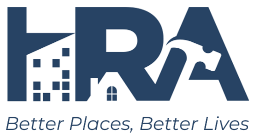Landlord Incentive Program
What Is It?
Landlords are vital to our mission to provide everyone with a safe, sanitary, and affordable home. Together, we are able to provide a far greater number of these housing opportunities than if working alone. To demonstrate the value of this partnership, we have created the Cumberland County Landlord Incentive Program. Participating landlords will receive reimbursement for short-term vacancies and minor unit repairs when they rent their unit to a renter with a housing voucher or in need of Emergency Shelter.
The Authority has launched the Landlord Incentive Program to acknowledge a landlord’s investment in helping create housing opportunities.
Participating landlords will receive:
New Landlord Sign On Bonus
Landlords currently not accepting housing vouchers are eligible to receive a New Landlord Bonus of $500 upon entering the Housing Choice Voucher Program.
Continued Participation Bonus
Landlords will be eligible for a $200 Continued Participation Bonus when a previous Housing Choice Voucher tenant moves out and new Housing Choice Voucher tenant moves in.
Property Damage Reimbursement
Landlords may be reimbursed up to $500 for physical damages to a unit occupied by an Emergency Shelter Grant (ESG) or Housing Choice Voucher tenant.
Vacancy Reimbursement
Landlords may be provided a holding fee of $200 per month to hold a unit.
Quarterly Networking Events and Informational Sessions
Exclusive Landlords-Only Newsletter
Guaranteed Rental Payments
Tenant Pre-Screening
Additionally, we have implemented the Housing Choice Voucher Landlord Coalition, which seeks to create a network of invested housing choice landlords. Through this group of individuals, we will hold quarterly meetings to socialize and discuss policy and concerns, distribute a landlord-only newsletter, and encourage landlords to be advocates for housing voucher acceptance.
Common Questions
What does the Housing Choice Voucher process look like?
- Application
- A family applies to the agency to enroll in the program. (“Family” also includes elderly, disabled and displaced persons who live alone.)
- Certification
- The family is certified by the agency to participate in the program.
- Housing Selection
- The family chooses a place within 60 days that meets program housing standards and rent reasonableness limits. Their present dwelling may qualify too.
- Negotiation
- You and the family come to an agreement on lease terms.
- Agency Review
- The agency evaluates the lease and inspects the unit to make sure they both meet program standards. You and the family must inspect the unit too.
- Contract
- You and the agency execute a housing assistance payments (HAP) contract in order for payments to begin.
- Payments
- The agency pays you part of the rent each month. The family pays the rest.
What kind of housing is eligible?
Any type of rental housing—single-family dwelling to high rise apartment—is eligible.
How do I receive my rent payment?
Through housing assistance payments (HAP payments). The Housing Authority pays the difference between the contract rent and what the tenant pays. These payments are made on a monthly basis.
How much rent does the tenant pay?
The tenant’s rent share is based on 30% of their adjusted income and the payment standard for the number of bedrooms in the unit. The 30% figure takes into account the number of dependents and the cost of dependent child care and, for elderly or disabled persons, any extraordinary medical expenses.
How much can I charge someone with a housing voucher?
You are able to set the price you like for your unit, as long as it adheres to Fair Market Rent. Every year, HUD adjusts the Fair Market Rent (FMR) to reflect the current average rental unit pricing. This provides a guide for both Housing Authorities (like CCHRA) and their participating landlords to charge their tenants fairly and proportionately.
2023 Fair Market Rents
| Unit | Price |
|---|---|
| Efficiency Unit | $847 |
| One-Bedroom Unit | $975 |
| Two-Bedroom Unit | $1,228 |
| Three-Bedroom Unit | $1,570 |
| Four-Bedroom Unit | $1,650 |
What if I get a problem tenant?
As the landlord, you retain the right to evict any tenant, even one with a housing voucher. While we try to avoid evictions, it is between landlord and tenant if a lease agreement is broken in any way. Every tenant who receives a housing voucher is, however, pre-screened for any possible issues and is already prescribed the resources they may need to overcome these problems. You also get the chance to screen tenants based on your own criteria to avoid any miscommunications.There is no evidence to show that voucher holders make more problematic tenants than non-voucher holders. Studies show that most individuals with housing vouchers are long-term tenants, staying 7-8 years on average.
Will I have to accept housing vouchers for the rest of my career?
Not at all. It is your decision when to, and when not to accept vouchers. We will always be here to help when you do decide to!
Is there a limit on how many voucher holders I can accept into my units?
No! In fact, we encourage you to accept as many voucher holders as possible. For landlords with less than 10 units, we recommend utilizing the Small Landlord Revolving Loan Fund.
